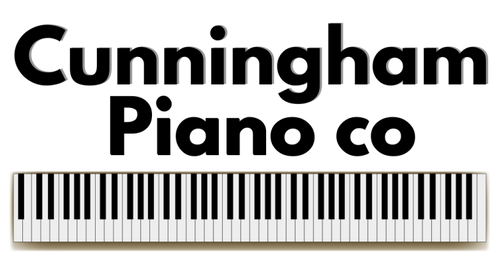Today, we sat down the Ms. Lucia Lostumbo–she’s the founder and head of our upper strings program. For a long time, we’ve believed that piano is the best instrument to start your wiggly pre-school aged musician on. Lucia has managed to convince us otherwise!
Q: Hi Ms. Lucia! What do you think the very best age for starting violin is?
A: I started when I was 7, but I would recommend earlier if you have the chance. I think 4 or 5 is best, but I have students that started later than that. It’s one of the few instruments that are really good for younger students–a small attention span isn’t as much of a problem as it is with piano or voice or wind instruments! We’re standing up and moving around. The lessons are broken down into lots of small sections with individual goals, so a student that’s interested in talking about all sorts of things in very quick succession is almost ideal–and any parent of a preschooler knows that there’s nothing preschoolers like better than changing the subject every few minutes.
Q: So if that’s the age you’re recommending, what do you do in your lessons to engage children that young?
A: As I mentioned before, we’re standing up and moving around. I really pack a lot of little learning games into my lessons as well. Learning through creative play is so important developmentally at that age.
Q: Music is well known to have a positive impact, developmentally. Do you notice any developmental differences in students once they start violin?
A: We mentioned learning through creative play is important developmentally and I really meant it! Students generally communicate better and more succinctly with me when we make sure to incorporate games into the lesson–students can’t really ask questions if they don’t know what’s going on. Games with perimeters and rules give them a clear understanding of what’s happening, so they know if they don’t understand and they know if they need to ask a question. Beyond that, students naturally develop problem solving skills through creative play.
As far as physical development goes, the violin is a culmination of both gross and fine motor skills.
Increased independence and increased attention span come with any sort of music lesson–when I’m not there, they need to remember their problem solving skills and make sure that they get the song to work. A half hour lesson and practice time without any playtime or screen time is absolutely incredible for an increased attention span. I really could go on and on, so I’ll stop there.
Q: All instruments help students develop all of their musical skills, but there’s certainly some skills that are developed more quickly in beginners depending on what instrument they take. What do violin and viola students learn more quickly than their piano counterparts?
A: I would say that piano lays out all the pitches for students, so their ears don’t have to be as sharp as string players to begin with. Especially with string instruments, you have to understand exactly what a note is supposed to sound like for tuning. You also need that same skill to make sure your finger is in the right place for the right note. So I would say, without a doubt, string instruments help students develop a concise musical ear much more quickly than other instruments would.
Q: Great! Last question: what’s the coolest part of working with students of all ages and levels?
A: The variety of styles! I love classical music, but I also love teaching students how to play fiddle. I’ve even done some My Chemical Romance music. If a student wants to play it, I’ll find the music and teach it to them! The styles really spread across ages, and a lot of the late-beginner/early-intermediate students really test their newfound skills with playing some of their favorite songs.
It’s also really very special to see people grow from where they’ve started–I have my littles who’s development is so enmeshed with music lessons that it’s becoming a big part of them and a big part of what they enjoy in life–that’s amazing to see. I also have adult students using the instrument as a way to get some ‘Me Time’, which is amazing in another way. And watching the transition from intermediate to advanced is ALWAYS such a treat. Being a string teacher is so special and so cool. I’m lucky.
She’s convinced us—has she convinced you? Sign up for a lesson with Ms. Lucia by clicking here and see for yourself!


